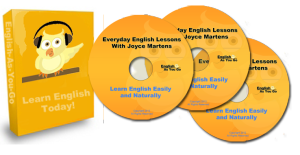Rule 6: Do Not Study Grammar To Speak English
This is the last rule of Everyday English course free video series. If you want to speak English fluently you should stop studying grammar books. Because, grammar rules won’t help you to speak English. Why? Watch below video and find out how improve English speaking without grammar books.
Everyday English course rule number 6. Studying grammar with a textbook will not help you speak English. You must understand and use the English grammar in the sentences you speak. when you practice English grammar, speak that sentences out loud and make the sentences up in your mind. Don’t read them from a text book.
When you use English grammar, you must understand 3 things. You must understand how the grammar point is formed. You must understand quite the English grammar structure means. And you must understand in what context it is appropriate to use that structure.
For example, i eat breakfast yesterday morning. I eat breakfast every morning. i will eat breakfast tomorrow. I eat breakfast yesterday morning is that past tense sentence. That mean it happened at a time in the past. “I eat breakfast every morning” is a present tense sentence and it means that it is the habbit something that usually happens or it doesn’t happen.
I will eat breakfast tomorrow morning, is a future tense sentence. It means that something will happen at a later time in the future. When you speak English you must be able to form those sentences in your mind as you speak them. Can being their bright meaning of time.
English also has an informal and formal way of using language. It is important to understand when it is appropriate to use informal or formal language. When you are speaking English, you must think about the way the languages used and decide if you can use formal or informal language forms.
Here’s an example 3 words: offspring, children and kids. All mean the same thing. Offspring is a very formal word that you would normally only see in academic writing. Children is the less formal word but you would still often see it in writing. And many times in spoken English. Kids isn the really informal word that is used in casual context. And used almost always in spoken English.
 You can see that spoken English is much more informal or casual then written English is. Of course there are situations when spoken English needs to be more formal for example at work, or in a job interview or when you’re speaking English to people that you don’t know very well.
You can see that spoken English is much more informal or casual then written English is. Of course there are situations when spoken English needs to be more formal for example at work, or in a job interview or when you’re speaking English to people that you don’t know very well.
But usually the language we use when we speak English is more natural and more relaxed. In by that we mean is less formal. At the LearnEnglishEnglish.com website you will learn natural spoken English easily and quickly. By focusing on the meaning of the stories. Not on the grammar of the sentences.
Click here to view more details!
Everyday English Lessons Video Series
Everyday English Course has great listening English lessons which help you to improve your speaking. Joyce Martens the teacher of Everyday English has powerful 6 rules:
Rule 1: Listening English is the most important activity.
Rule 2: Learn the Music of English is another important thing to do.
Rule 3: Repetition is the key to learn English.
Rule 4: Think and speak English without translation.
Rule 5: Learn English phrases and idioms. You must learn real English (idioms and phrases) to understant and speak English easily.